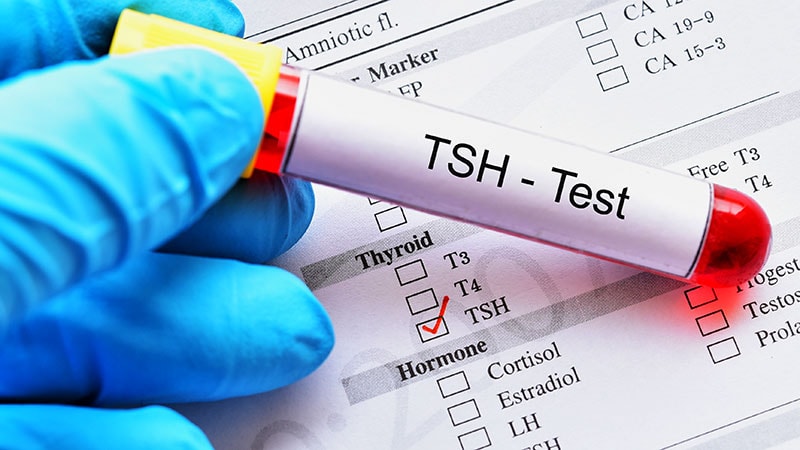Understanding Elevated TSH Values and Treatment Necessity
核心概念
Not all elevated TSH values require immediate treatment.
要約
The article discusses the necessity of therapy for elevated TSH values and the factors that influence the decision. It emphasizes that not every high TSH value indicates hypothyroidism and that fluctuations in TSH levels should be considered before initiating treatment. Various reasons for elevated TSH values, such as age, sex, obesity, and external factors like biotin intake, are explored. The importance of thorough evaluation, including symptoms and additional tests, before deciding on treatment is highlighted.
要約をカスタマイズ
AI でリライト
引用を生成
原文を翻訳
他の言語に翻訳
マインドマップを作成
原文コンテンツから
原文を表示
www.medscape.com
Does an Elevated TSH Value Always Require Therapy?
統計
"One large health insurance company ranks thyroid hormone at fourth place in the list of most-sold medications in the United States."
"Normally, the TSH value lies between 0.3 and 4.2 mU/L."
"In 50%-60% of cases, the TSH value normalized at the second checkup without requiring any treatment."
引用
"Not every elevated TSH value needs to be treated immediately."
"Sometimes, because of the assumption that every high TSH value is due to sickness-related hypothyroidism, thyroid hormones can be prescribed too quickly."
抽出されたキーインサイト
by Ute Eppinger 場所 www.medscape.com 10-05-2023
https://www.medscape.com/viewarticle/997109
深掘り質問
When should clinicians consider additional tests beyond TSH levels?
Clinicians should consider additional tests beyond TSH levels when patients present with newly occurring symptoms that could be indicative of thyroid dysfunction, such as excess weight, impaired weight regulation despite reduced appetite, depression, or a high need for sleep. In such cases, further evaluation of thyroid function is necessary. This includes determining free thyroid hormones T3 and T4, detecting antibodies against autologous thyroid tissue like TPO-Ab, TG-Ab, and TRAb, as well as conducting an ultrasound examination of the thyroid gland. These additional tests can help identify autoimmune-related hypothyroidism, which is a common cause of elevated TSH levels.
Is there a risk of underdiagnosis if treatment is delayed for slightly elevated TSH values?
There is a potential risk of underdiagnosis if treatment is delayed for slightly elevated TSH values. While not every elevated TSH value requires immediate treatment, it is essential to monitor and reevaluate these values over time. Delaying treatment without proper follow-up can lead to overlooking underlying thyroid dysfunction, especially in cases where symptoms are present. Patient education is crucial in understanding the nuances of thyroid function and the importance of regular monitoring to prevent underdiagnosis and ensure appropriate treatment when necessary.
How can patient education help in understanding the complexities of thyroid function and treatment?
Patient education plays a vital role in helping individuals understand the complexities of thyroid function and treatment. By educating patients about the role of TSH as a screening value for thyroid function, the significance of fluctuations in TSH levels, and the various factors that can influence TSH values, patients can become more informed about their condition. Understanding the reasons behind elevated TSH values, such as age-related differences, sex-specific variations, obesity-related effects, and the impact of biotin supplementation, can empower patients to actively participate in their healthcare decisions. Additionally, educating patients about the symptoms of thyroid dysfunction, the importance of follow-up testing, and the criteria for initiating treatment can improve adherence to treatment plans and overall outcomes.
0
